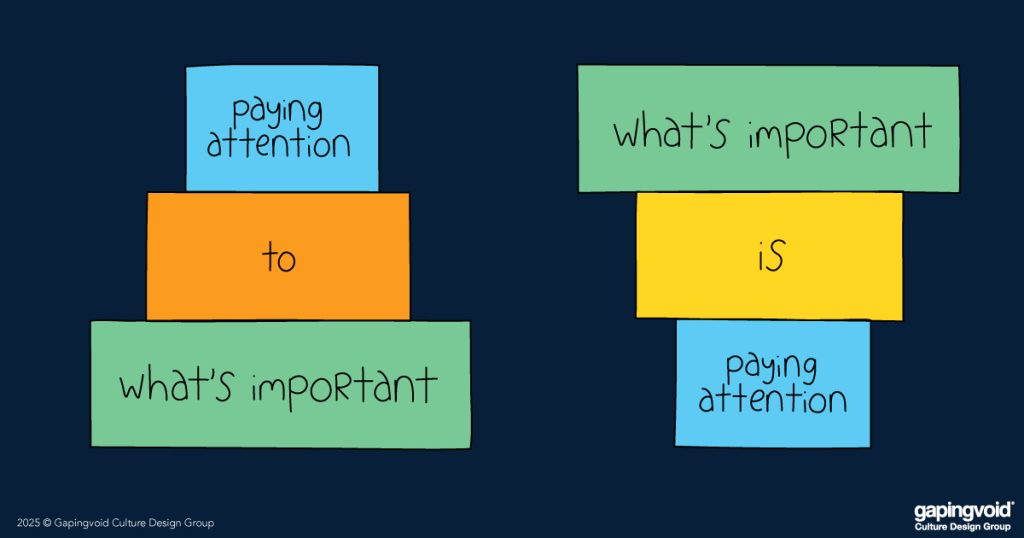
Back in 1971, long before Twitter meltdowns and TikTok swipe fests, Nobel Prize-winning economist, Herbert A. Simon said something that should have been a warning:
“In an age of information overload, the ultimate scarce resource is human attention.”
Herbert knew something we’re just learning the hard way: when we lose control of our attention, we lose control of our life.
We didn’t listen.
Today, we’re living in the middle of an attention heist. Every app, news site, and algorithm is designed to steal our focus and leave us scattered.
Fifty years ago, everything moved slower. You’d read the morning paper over coffee, catch the evening news, and that was it. Information was scarce but trusted, and attention was abundant.
Now we’re drowning in global content but starving for the ability to think and focus.
Interestingly, the generation that grew up with this digital chaos is starting to reject it. A recent UK study claims that almost half of 16 to 21-year-olds “would prefer a world without the internet.” Nearly 70% say they feel worse after using social media, and half support a “digital curfew” to force themselves offline.
The kids we thought were the most addicted are setting their phones down first.
They’re not the only ones. By some estimates, a third of people worldwide now actively avoid the news, not because they don’t care, but because it’s too overwhelming.
Microsoft discovered that the average attention span has shrunk to just 8 seconds (a significant reduction from 12 seconds in the 2000s). Which means we’re now literally worse than goldfish.
We used to read books. Now we scroll. We used to debate. Now we rage-post. The internet promised connection but delivered fragmentation. Of our own minds.
We could go the way of the young people – delete social media, go on a digital detox. But those are just new ways of avoiding the real work.
It’s not that we’re online too much. It’s that we’ve stopped choosing. We consume whatever the algorithm serves up instead of intentionally deciding what deserves our focus.
The opportunity is straightforward enough: decide what matters and seek that out – both IRL and online.
If attention is our scarcest resource, it’s time to stop giving it away for free.
.png)



